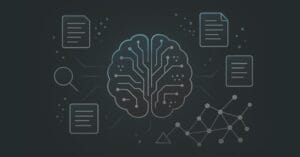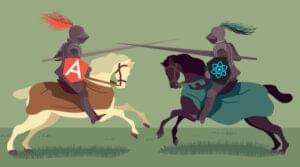
We’re very pleased to announce the latest addition to the SitePoint library, Simply SQL, by Rudy Limeback.
Simply SQL is a practical step-by-step guide to writing SQL. You’ll learn how to make the most of your data using best-practice SQL code. Rather than bore you with theory, it focuses on the workaday use of SQL with common databases, and uses plenty of diagrams, easy-to-read text, and examples to help make learning SQL easy and fun.
Grab yourself a copy of Simply SQL for just $34.95 or check out the free sample.
Why Learn SQL?
SQL is a simple, high-level language with tremendous power. You can perform tasks with a few lines of SQL that would take pages and pages of intricate coding in a programming language. It’s the language used by all major database systems today and, although it’s been around for about 30 years, is enjoying a renaissance in the 21st century, thanks to the tremendous success of database-driven web sites.
Whether your web site is written in PHP, ASP, Perl, ColdFusion, or any other programming language, and regardless of which database system you want to use—MySQL, PostgreSQL, SQL Server, DB2, Oracle, or any of the others—one fact is almost certain: if you want to have database-driven content, you’ll need to use SQL.
Who’s this Rudy Limeback Guy?
If you’ve visited our forum before, chances are you’ve heard of Rudy. Under the name r937, Rudy has accumulated over 26,000 posts. If you’ve ever asked a question in our Databases forum, you’ll already know just how deep Rudy’s understanding of SQL is, as well as his astute ability to teach others. And for everyone else …
Rudy Limeback is an SQL Consultant living in Toronto, Canada. His SQL experience spans 20+ years, and includes working with DB2, SQL Server, Access, Oracle, and MySQL. He is an avid participant in discussion forums, primarily here at SitePoint. His two web sites are http://r937.com/ and http://rudy.ca/.
Grab yourself a copy of Simply SQL for just $34.95 or check out the free sample.
Frequently Asked Questions about Learning SQL
What are the prerequisites for learning SQL?
SQL, or Structured Query Language, is a standard language for managing data held in a relational database management system. It’s a fundamental skill for data analysts, data scientists, and anyone working with data. The prerequisites for learning SQL are minimal. Basic computer skills and a general understanding of databases are helpful, but not necessary. SQL is a beginner-friendly language, and you can start learning it even if you have no prior programming experience.
How long does it take to learn SQL?
The time it takes to learn SQL can vary depending on your background and the time you can dedicate to learning. If you spend a few hours each day, you can grasp the basics in a few weeks. However, mastering SQL, like any other language, requires practice. The more you use it, the better you’ll get.
Can I learn SQL for free?
Yes, there are many resources available online where you can learn SQL for free. These include online tutorials, video lessons, and interactive platforms that allow you to practice SQL commands in real-time. Some of these resources include SQLZoo, Codecademy, and Khan Academy.
What are some common SQL commands I should know?
Some of the most common SQL commands include SELECT, INSERT, UPDATE, DELETE, WHERE, AND, OR, NOT, ORDER BY, and GROUP BY. These commands allow you to retrieve, insert, update, and delete data from a database, as well as filter and sort data.
Is SQL a programming language?
Yes, SQL is considered a programming language, but it’s different from procedural languages like Java or Python. SQL is a declarative language, which means you tell it what you want done, and it figures out how to do it.
Can I use SQL for data analysis?
Absolutely! SQL is a powerful tool for data analysis. It allows you to query and manipulate large amounts of data quickly and efficiently. With SQL, you can filter, sort, and aggregate data, as well as perform complex calculations.
What is the difference between SQL and MySQL?
SQL is a standard language for managing and manipulating databases. MySQL, on the other hand, is a database management system that uses SQL. In other words, SQL is the language, and MySQL is the tool that interprets and executes your SQL commands.
How can I practice SQL?
There are many online platforms where you can practice SQL. These platforms provide a database and a coding environment where you can write and execute SQL commands. Some of these platforms include SQLFiddle, Mode Analytics, and LeetCode.
What are some common mistakes beginners make when learning SQL?
Some common mistakes include not fully understanding how JOINs work, neglecting to use the WHERE clause in UPDATE and DELETE statements, and not using aliases when working with multiple tables. It’s important to understand these concepts and use them correctly to avoid unexpected results.
Can I use SQL with other programming languages?
Yes, SQL can be used in conjunction with other programming languages like Python, Java, and R. These languages have libraries or modules that allow you to interact with a database using SQL commands. This allows you to retrieve, insert, update, and delete data from a database directly from your code.

